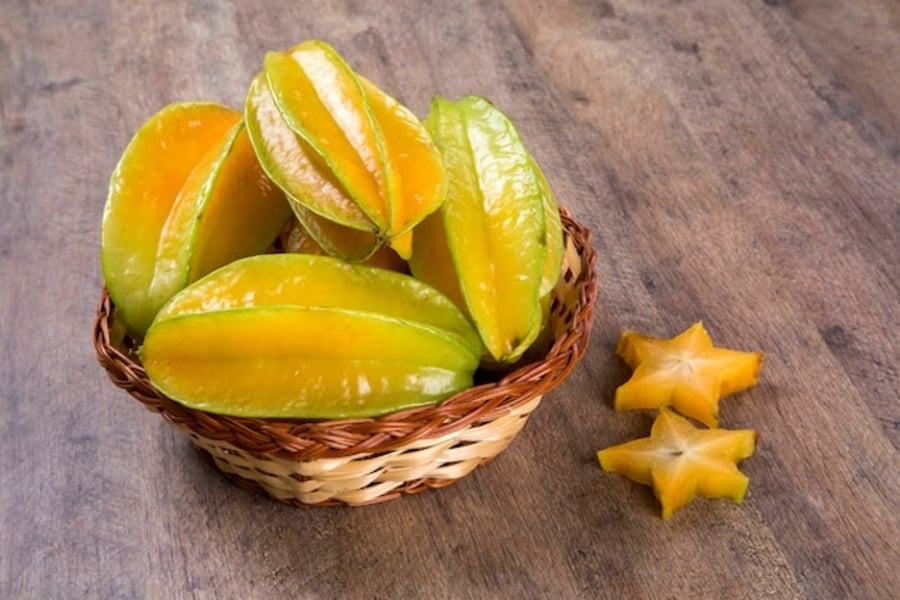1. Oranges
According to the United States Department of Agriculture (USDA), oranges are among the most vitamin C-rich fruits, containing 53mg of vitamin C per 100g. Vitamin C stimulates white blood cell production and aids the body in fighting off the influenza virus.
Oranges enhance the production of antiviral antibodies, reducing both the duration and severity of flu symptoms.
Consume oranges by eating them fresh or juicing them daily.
Combine oranges with other fruits to boost their nutritional value.

Oranges boost antiviral antibody production, reducing flu symptom duration and severity.
2. Lemons
Lemons, or calamansi, belong to the Rutaceae family. Modern research indicates that lemons are rich in vitamin C and antioxidants from the flavonoid group (polymethoxylated flavones in lemons are 20 times higher than in common fruits and vegetables).
Thus, lemons possess detoxifying properties, protect blood vessels, boost immunity, and counteract the harmful effects of free radicals, thereby slowing down the aging process.
The recommended dosage is one cup (250ml) of concentrated lemon juice daily. This can be diluted for convenience if consuming throughout the day.
Lemon wedges combined with salt can be used for gargling to treat sore throats. For a sore throat caused by a heat illness, mix 30ml of lemon juice with water and drink. To improve excessive phlegm production, take two whole lemons, add an appropriate amount of rock sugar, and steam them.
Note:
Although lemons offer various benefits, excessive consumption of lemon water can lead to stomach ulcers, gastroesophageal reflux, headaches, dehydration, and vitamin C overload.
The citric acid in lemon juice can erode tooth enamel and cause dry mouth and tongue. Therefore, use a straw when drinking lemon water, and rinse your mouth with plain water afterward.

Lemons possess detoxifying properties and protect blood vessels.
3. Star Fruit
Star fruit contains sugars, 1% oxalic acid, and various trace elements such as potassium, calcium, iron, phosphorus, and vitamins A, C, B1, and B2. Additionally, star fruit is rich in beneficial plant compounds like gallic acid, quercetin, and epicatechin, which exhibit potent antioxidant properties.
In traditional medicine, star fruit is considered non-toxic and has a waxy, sweet-sour nature. To treat a runny nose and sore throat, extract the juice from 90-120g of fresh star fruit and drink it.
However, star fruit can cause adverse effects in some individuals due to its high oxalate content. For those with kidney issues, regular consumption of star fruit can lead to kidney damage, and the toxicity of star fruit may cause neurological problems such as confusion, seizures, and even death.
Therefore, individuals with kidney problems should refrain from eating star fruit and consult a doctor before consuming star fruit products. Prescribed medication users should also exercise caution when eating star fruit, as it can interfere with drug metabolism and utilization, similar to grapefruit.

Fresh star fruit juice is effective in treating a runny nose and sore throat.
4. Bananas
Bananas are not only rich in vitamin B6 and potassium but also contain prebiotics, which nourish beneficial gut bacteria.
According to the US Centers for Disease Control and Prevention (CDC), a healthy digestive system plays a crucial role in strengthening immunity and fighting the influenza virus.
Consuming bananas supports the growth of beneficial gut bacteria and improves the absorption of essential nutrients.
Bananas also provide a quick energy boost, helping to reduce fatigue associated with the flu.
Eat bananas directly or blend them into a smoothie with almond milk.
Combine bananas with oatmeal or chia seeds to enhance their nutritional value.
5. Pears
Pears are effective in treating coughs, expelling phlegm, moisturizing the lungs, clearing heat, generating body fluids, nourishing the blood, and soothing a hoarse voice.
Pears contain protein, lipids, cellulose, calcium, phosphorus, iron, carotene, vitamins B1, B2, and C, glucose, and acetic acid. Regular pear consumption is beneficial for treating high blood pressure, cardiovascular issues (which can lead to dizziness, ringing in the ears, and blurred vision), pulmonary tuberculosis, and acute bronchitis.
Here’s a pear remedy: Take one fresh pear, add 3g of thorowax, and cut off the top of the pear to create a lid. Hollow out the pear, fill it with thorowax, secure the lid with a toothpick, and steam it in a bowl for 1-2 hours. Drink the juice and eat the pear once it has cooled. Do this once a day to help relieve coughs and colds.
As pears have a cooling nature, individuals with stomach aches or diarrhea should refrain from consuming them. Avoid eating bruised or damaged pears to prevent gastrointestinal issues.
































